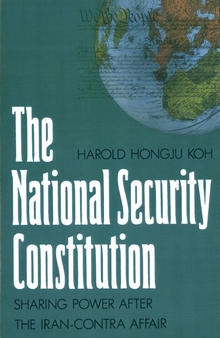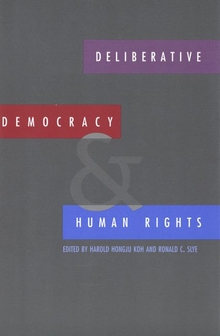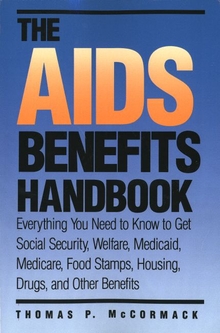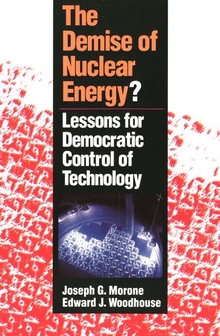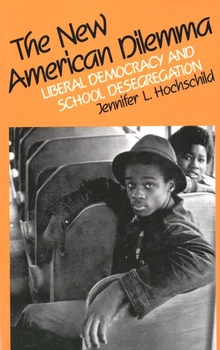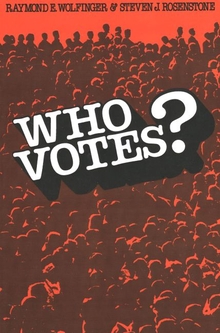The National Security Constitution
WARNING
You are viewing an older version of the Yalebooks website. Please visit out new website with more updated information and a better user experience: https://www.yalebooks.com
Sharing Power after the Iran-Contra Affair
Harold Koh
Koh contends that the Iran-Contra affair arose not from Watergate, as many have claimed, but from Vietnam, for it was only the latest episode in a series of foreign policy decisions made by unrestrained executive discretion. Koh shows that throughout its history America has operated under a ‘National Security Constitution,’ a constitutionally defined national security process that views that administration of foreign affairs as a power shared by the president, Congress, and the courts. Yet the executive branch has increased its role in making foreign policy at the expense of the other branches, placing in jeopardy this vision of constitutional balance. Koh advocates a national security charter to reform the foreign policy-making process and offers innovative proposals about war powers, international agreements, emergency economic powers, intelligence oversight, and information control. His proposals would restrain the executive and restore and reinvigorate the constitutional roles of Congress and the federal judiciary in national security decision-making. This challenging book forces government decision-makers, scholars, and concerned citizens to reexamine the process by which the United States will conduct its foreign affairs into the next century.
"A timely, well-written, and valuable contribution to public debate on issues of great moment. It is a combination of alarm-sounding analysis and intelligent prescription."—Alton Frye, Washington Director, Council on Foreign Relations
"Professor Koh assesses and addresses the single most vexing constitutional issue of our day: the sharing of power between the president and congress in matters of national security and war making. Without doubt, his book is the definitive work on the subject. He not only sets forth the dilemma; he proposes an imaginative solution."—Former U. S. Senator Thomas F. Eagleton
"Professor Koh's valuable book provides an insightful and thorough analysis of the constitutional implications of the Iran-Contra affair. His principal thesis—that the affair was a consequence of fundamental inadequacies in our system for managing relations among the executive, legislative, and judicial branches—is a challenging one. He makes his case very well. His proposals for legislative and administrative reform deserve careful consideration." —Congressman Lee H. Hamilton, Chairman of the House Select Committee to Investigate Covert Arms Transactions with Iran
"Harold Koh has made an enormous contribution to a much neglected area of fundamental concern—the executive's untrammeled exercise of national security power. . . . Koh's cogent prescription for addressing the constitutional problem and restoring the balance of power among the several branches is on target and urgently needed."—Representative Robert W. Kastenmeier, Member, House Intelligence and Judiciary Committee
"Professor Koh's treatment of the Iran-Contra affair is what we have needed the most—a masterly, authoritative, unflinching consideration of its larger constitutional significance and implications."—Theodore Draper, author of The Abuse of Power
"A masterly, unflinching study, which takes the view that the president and Congress 'share' in the making of foreign as well as domestic policy."—Theodore Draper, New York Review of Books
"Koh's book stands out . . . in its clarity, its breadth of vision and its common sense. . . . [He] provides the comprehensive perspective too often wanting in the piecemeal reforms that usually follow a disaster like the Iran-Contra affair."—David Cole, Yale Law Review
"Scholarly and plainspoken, critical and constructive, this important study points the way to a viable system of shared responsibility in the conduct of our foreign relations."—Paul A. Freund, University Professor, Emeritus, Harvard Law School
"The unsettled—and unsettling—nature of Iran-Contra makes Professor Koh's persuasive analysis of the scandal and its implications for U. S. policymaking especially important. He brings to the work the experience of law clerkships with Justice Harry A. Blackmun and U. S. Judge Malcolm Wilkey, a stint with the Office of Legal Counsel in the Department of Justice, a professorship at Yale Law School since 1985, and an ability to present the complicated issues involved with breathtaking clarity. . . . Koh argues convincingly that Iran-Contra was not an aberration, but was, rather, the consequence of a fundamental failure of the legal structure that regulates the relations among the President, Congress and the courts in foreign affairs. . . . He has rendered a major service by illuminating the seriousness of Iran-Contra and proposing remedies that match the magnitude of the problem."—Louis Fisher, Constitution
"To Koh's credit, his work is more than just analytically and historically thorough."—Bloomsbury Review
"Well-documented and clearly written."—Orbis
"Koh . . . cogently reviews the facts and legal issues of Iran-contra, particularly failures of the investigations to adequately explore institutional deficiencies that perpetuate executive domination and congressional and Court acquiescence."—Frederick J. Roberts, Annals of the American Academy of Political and Social Science
"A work of prodigious scholarship."—Richard J. Powers, Canadian Journal of Political Science
"An important contribution toward the development of a more effective system for maintaining and nurturing a governmental system for the maintenance of national security."—Harold G. Maier, Emory International Law Review
"Starting with a single event—the Iran-Contra scandal during the Reagan presidency—Harold Hongju Koh presents a comprehensive and convincing case for change in the approach to foreign affairs."—Samuel B. Hoff, Southeastern Political Review
"Harold Koh's admirable and ambitious work examines the Iran-contra affair in the context of a larger, systematic analysis of the adequacy of our National Security Constitution. . . . Koh's book is essential reading for scholars engaged in issues of national security and foreign policy, for it offers an insightful analysis of a recurrent problem in American politics: congressional and judicial acquiescence in the presidential corruption of the constitutional design for foreign affairs."—David Adler, Political Science Quarterly
"This is a fine book and a timely one. . . . Koh uses the Iran-Contra affair to argue a number of general points. Until 1936 he claims there was in implicit National Security Constitution (derived from the Constitution's few clauses, statute law and Supreme Court judgements) whose animating principle was a balanced institutional participation. . . . His book is a powerful defence of this National Security Constitution and a strong, but never cavalier, critique of the so-called Curtiss-Wright model, whose recent predominance is admirably explained. . . . A welcome book and a pleasure to review."—Richard Hodder-Williams, Political Studies
"Brilliant. . . . Koh's case is backed by meticulous scholarship and . . . is entirely convincing."—John Dumbrell, American Politics Review
"Koh offers a disturbing narrative of the rise of executive dominance in foreign-policy making. . . . The National Security Constitution is sweeping . . . in its diagnosis and prescriptions. . . . In the wake of Iran-Contra and of the Persian Gulf War, Congress will almost certainly get down to the business of reforming its relations with the President in the foreign policy area. When it does, Koh's book will deserve attention."—Peter Shabecoff, Harvard International Law Journal
"Koh's thesis and his prescription are compelling. He has synthesized a coherent vision of the constitutional balance of government, and he effectively applies that vision to the management of modern national security problems. . . . Koh's combination of legal analysis and practical insights makes the book both a work of gifted legal scholarship and a useful centerpiece for the ongoing political debate. Koh's book is ambitious, insightful and thorough, and because it pulls no punches, it is likely to stimulate a good deal of discussion on both the legal and political levels."—Todd D. Peterson, George Washington Law Review
"An important addition to the literature on the Iran-contra affair because the author moves the event beyond the realm of such personal and journalistic accounts . . . to the more fruitful realm of constitutional history. . . . required reading for experts, practitioners, and the lay public for whom it will be enjoyable reading as well."—Robert L. Bledsoe, Perspectives on Political Science
Publication Date: September 10, 1990

